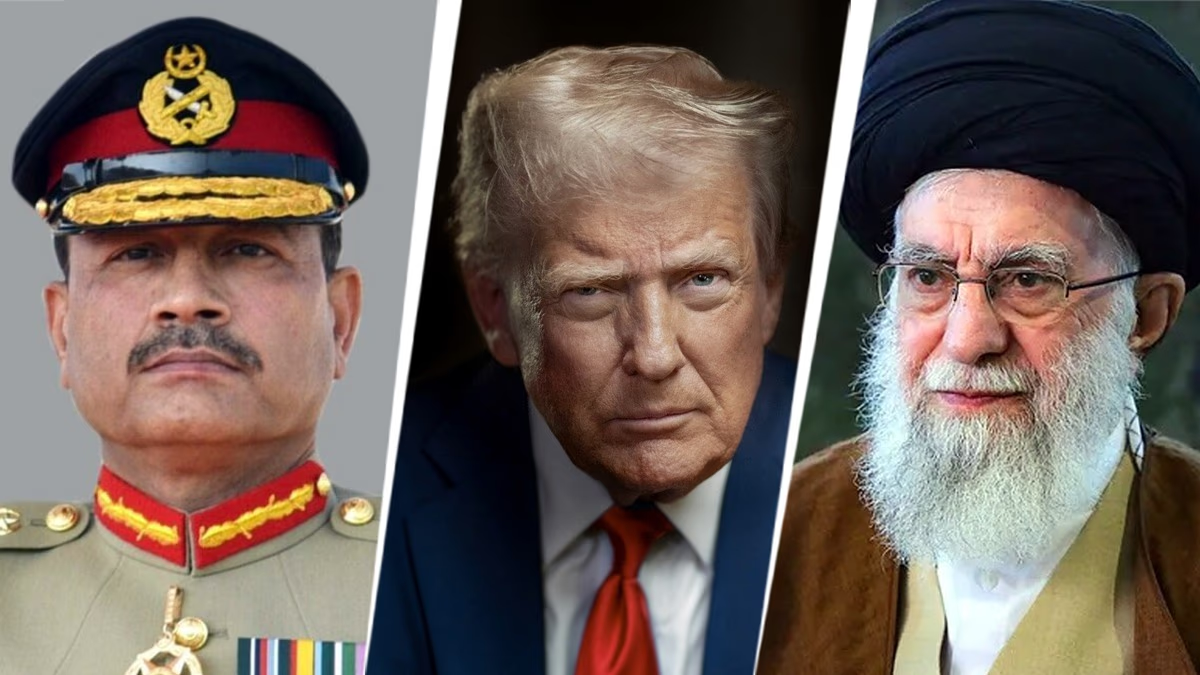When Israel attacked Iran, Pakistan showcased a bold stance. Pakistan's Defense Minister Khawaja Asif passionately stated, "Israel has targeted Iran, Yemen, and Palestine. If Muslim countries do not unite now, everyone will face the same fate."
Khawaja Asif pledged Pakistan's support to Iran in the National Assembly and called for Muslim unity following Israeli attacks. Speaking in the National Assembly, Khawaja Asif emphasized that Muslim countries should initiate unity against Israel, saying, "Israel has targeted Iran, Yemen, and Palestine. If Muslim countries do not unite now, everyone will face the same fate."
He urged Muslim countries maintaining diplomatic relations with Israel to immediately sever ties and called for an Organisation of Islamic Cooperation (OIC) meeting to develop a joint strategy. Asif highlighted the profound ties between Pakistan and Iran, asserting Islamabad's unwavering support for Tehran during these challenging times. The Defense Minister stated, "We stand with Iran and will support them at every international platform to protect their interests."
Iran interpreted this statement strongly. General Mohsen Rezaee, a member of the IRGC and Iran's National Security Council, announced on Iranian state television, "Pakistan has informed us that if Israel uses a nuclear bomb on Iran, Pakistan will also use a nuclear bomb on Israel."
The Defense and Foreign Ministers had to clarify
Iran publicly affirming that Pakistan assured them of nuclear support under specific conditions was significant. It marked a significant shift in Pakistan's nuclear doctrine, where Pakistan was willing to use nuclear arms in defense of other countries.
Amid international media coverage, Islamabad retracted this statement.
Pakistan's Defense Minister Khawaja Asif completely dismissed Iran's claims, stating that Islamabad made no commitment to a nuclear strike against Israel. Pakistan clarified it has no such intentions. While expressing support for Iran and denouncing Israel's actions, Pakistan withdrew the nuclear threat.
Now, Pakistan's Foreign Minister Ishaq Dar also clarified the statement made by the Iranian general. Ishaq Dar told Parliament, "A viral social media video shows an Iranian general claiming that if Israel conducts a nuclear strike on Iran, Pakistan will retaliate with nuclear weapons on Israel." He called it an irresponsible and false report.
The Foreign Minister emphasized that Pakistan's nuclear policy has remained unchanged since 1998. Rejecting the Iranian general's statement as fabricated, he reiterated that Pakistan's declared policy is for self-defense. Ishaq Dar also stated, "Israel cannot even dare to eye Pakistan."
Dr. Rishi Paul of the European Leadership Network pointed out that despite being a nuclear power, Pakistan exercises caution to avoid direct military confrontation with Iran or action against Israel and America. This is crucial, especially when Pakistan is grappling with an economic crisis and requires financial aid from Western nations.
Asim Munir enjoying Trump's hospitality
Notably, Pakistan's mild nuclear rhetoric unfolds while America, under Trump's shadow, is relishing its ties with Pakistan's power nucleus. Following Operation Sindoor, promoted to Field Marshal, Asim Munir is on a week-long US visit, engaging with US senators and think tanks advocating for Pakistan.
Since Operation Sindoor, there has been a discernible shift in US policy toward Pakistan. Trump has claimed multiple times that he resolved the India-Pakistan conflict through "trade," announcing on Truth Social on May 10, an "instant and comprehensive ceasefire" facilitated by his mediation. However, India had rejected this claim, stating the ceasefire resulted from bilateral talks without any trade discussions.
The recent closeness between Trump and Pakistan is attributed to several factors, encompassing economic, military, and geopolitical reasons.
Pakistan has offered Trump significant economic opportunities in America. Pakistan is granting contracts to American companies for mineral mining in Balochistan. Moreover, Pakistan has made a major cryptocurrency deal with America, involving those close to Trump.
American back-channel diplomacy and intelligence agencies are attempting to reestablish connections with Pakistan's intelligence agencies. During Imran Khan's tenure, the entire US intelligence network operating in Pakistan suffered from Imran's hostility.
Occasionally, Trump and Shahbaz Sharif's backstage appreciation constrains America's hold on Chinese interests in Pakistan.
But, another layer of US-Pakistan ties involves Middle Eastern politics.
Neighboring Iran, a country that American strategists label 'Axis of Evil,' is a close neighbor to Pakistan. America never wishes for Iran's nuclear ambitions to materialize.
While military operations may be orchestrated by Israel, everyone is aware that the mission is remotely controlled by America.
To ensure Iran is devoid of nuclear weaponry, Trump requires ground cooperation in Pakistan for thorough surveillance of Iran's activities. It is noteworthy that Pakistan and Iran share a 909-kilometer border, dividing Iran's Sistan and Balochistan from Pakistan's Balochistan.
Experts opine that to cement this trust, the Trump administration and the American military have warmly acknowledged Asim Munir's efforts, branding Pakistan as a key player in the fight against terrorism. This recognition led to Asim Munir receiving an invitation to America.
During the Cold War, the USA leveraged Pakistan against the USSR. Now, America aims to utilize its presence in Pakistan against Iran and China.
America’s strategic moves against China are significant, but operating within Pakistan and leveraging Israel against Iran is a convenient task for the US. America has already commenced steps in this direction.
The timing of Asim Munir's U.S. visit coincides with Israeli jets creating havoc over Iran's skies.
Had Asim Munir, promoted as Field Marshal under undue praise during Operation Sindoor, been in Pakistan, the Army Chief might have faced pressure to assist a fellow Islamic nation (Iran).
Pakistan consistently portrays itself as the leader of the Islamic Ummah. However, Asim Munir's absence curbs this pressure. By conciliating Asim Munir, America resolved Iran's long-standing conundrum favorably.




